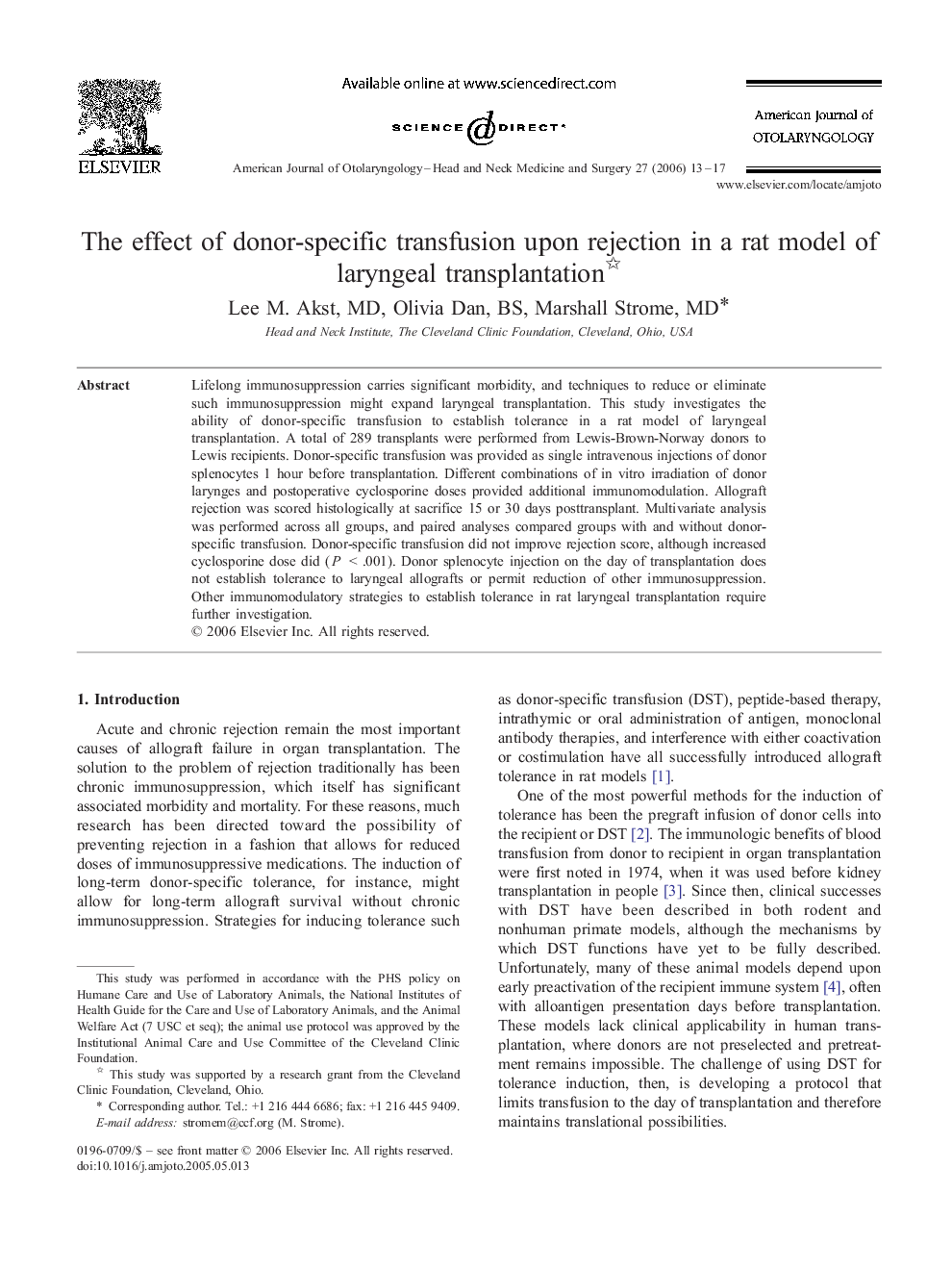| Article ID | Journal | Published Year | Pages | File Type |
|---|---|---|---|---|
| 4104657 | American Journal of Otolaryngology | 2006 | 5 Pages |
Lifelong immunosuppression carries significant morbidity, and techniques to reduce or eliminate such immunosuppression might expand laryngeal transplantation. This study investigates the ability of donor-specific transfusion to establish tolerance in a rat model of laryngeal transplantation. A total of 289 transplants were performed from Lewis-Brown-Norway donors to Lewis recipients. Donor-specific transfusion was provided as single intravenous injections of donor splenocytes 1 hour before transplantation. Different combinations of in vitro irradiation of donor larynges and postoperative cyclosporine doses provided additional immunomodulation. Allograft rejection was scored histologically at sacrifice 15 or 30 days posttransplant. Multivariate analysis was performed across all groups, and paired analyses compared groups with and without donor-specific transfusion. Donor-specific transfusion did not improve rejection score, although increased cyclosporine dose did (P < .001). Donor splenocyte injection on the day of transplantation does not establish tolerance to laryngeal allografts or permit reduction of other immunosuppression. Other immunomodulatory strategies to establish tolerance in rat laryngeal transplantation require further investigation.
